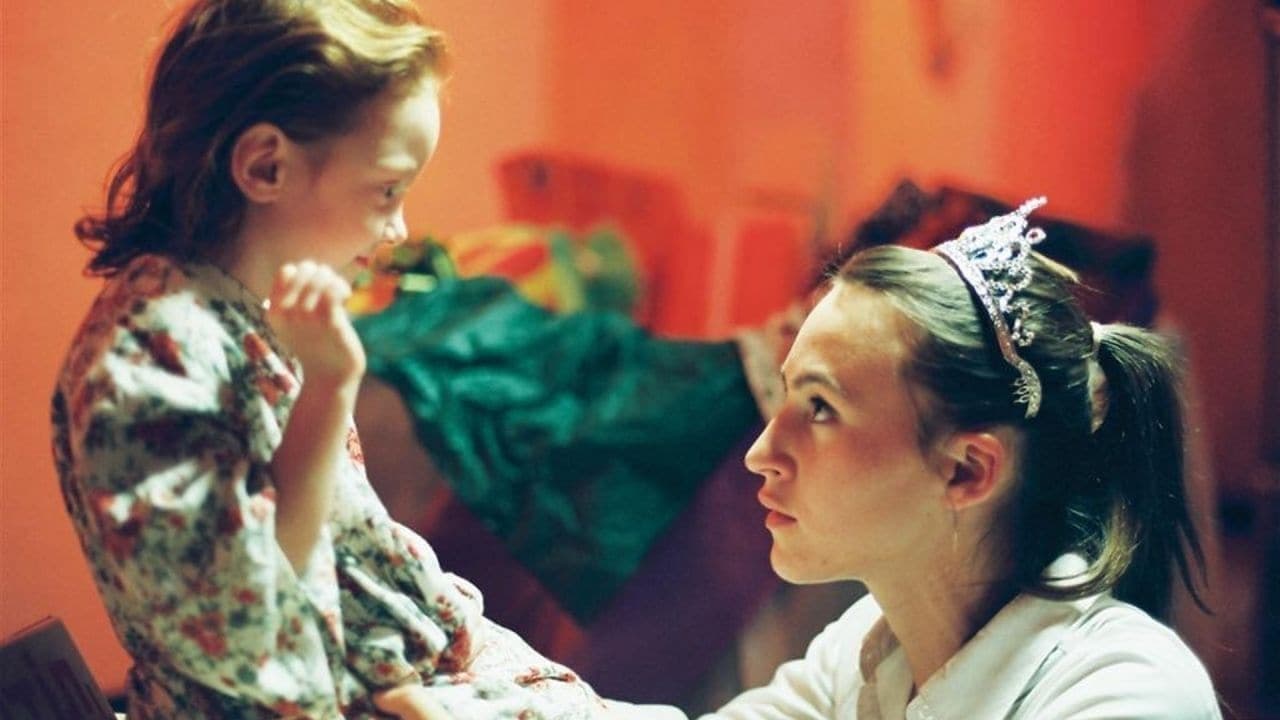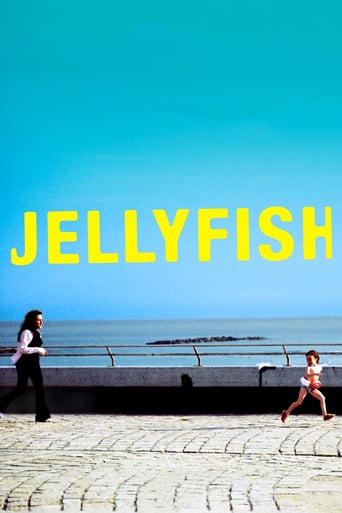Ameriatch
One of the best films i have seen
Tetrady
not as good as all the hype
Tacticalin
An absolute waste of money
Taraparain
Tells a fascinating and unsettling true story, and does so well, without pretending to have all the answers.
wondercritic
I went to see this because I'd never seen Tel-Aviv, where the story is set. I was disappointed, since it doesn't offer many views of Israel's largest metropolis. It's also pretentious—one of those movies that leaves you guessing at its meaning until you ultimately give up with a shrug of the shoulders.The main protagonist is Batya, a woman in her twenties' who works as a waitress at catered weddings. Her parents evidently don't care about her very much, and when a little girl walks out of the sea with an inflatable ring around her, Batya feels compelled to take care of her. The little girl doesn't speak, and Batya can't give her to social services because it's the weekend and the agency is closed. So she takes her back to her apartment with the leaky roof, and when it comes time to work in the evening, she has to take the little girl with her. The boss is very unhappy about this and other shortcomings in Batya's work performance.Another main character is Keren, who is getting married. At her wedding party (where Batya is of course working), she breaks her leg climbing out of a ladies' room cubicle whose door won't open, and so she and her new husband cannot take the Caribbean vacation they've planned. They end up in a dingy hotel on the seafront without a view. It smells bad, there is noise from the traffic, and Keren is complaining all the time. Her husband meets a strangely attractive older woman – a writer – who is also staying in the hotel, and Keren worries that he has slept with this stranger.The third main character is a Filipino woman named Joy who looks after old people. The old woman she is hired to care for is very crabby and speaks no English, only German and Hebrew. Joy speaks English but no Hebrew or German. Joy is mostly concerned with how her son is doing back in the Philippines, and wants to buy him a toy boat, as he has asked. She finds the perfect boat in a store and plans to buy it. The daughter of the old woman, who hired Joy, is an actress appearing in some sort of post-modern "physical theater" adaptation of Hamlet, and does not get along with her mother.The way in which these three stories—which intersect momentarily—resolve themselves is presumably supposed to mean something profound. I didn't get it. There is a fantasy element to Batya's relationship with the little girl, and maybe Batya's non-existent relationship with her parents is somehow inverted in this relationship. When Joy sees the toy boat in the shop window, there is a strange effect used where the little sails billow as if blown by the wind, and they do this as if they are on the scale of a real-life ship. Keren draws the outline of a bottle around a ship that is on a brochure cover in the hotel room, and a narration of the strange woman's poetry mentions a ship in a bottle. But what does all this mean? I thought about it for a while and realized I wasn't going to lose any sleep in the process. If anyone out there has a clear idea of what it's all about, maybe they can fill me in.
brewsterlewster
This film is showing at the Maine Jewish Film Festival in April and I was fortunate enough to see it early. The film is a unique offering from Israel where you do not often see poetic films like this. The acting is excellent, too. The story may be a bit abstract for some and others may think it is a bit derivative. But all art derives from life or reflections of life and this film is a wonderful look into the lives of these women and a mysterious little nymph from the ocean who wears a float ring. Well worth the awards garnered so far: Cannes Film Festival,Bratislava International Film Festival, and Israeli film Academy. A movie worth seeking out!
richard_sleboe
The director is sweet, as is his co-directing wife Shira Geffen, but their movie sucks. It has its moments (and some pretty girls), but there is too much of everything: "Amélie" meets "Breaking the waves" meets "Pauline at the beach". You walk away wanting to know more about the wedding photographer, and about the girl who likes it best when nothing happens, be it in movies or in real life. Instead, you get a suicidal writer, a neurotic actress and an illegal-immigrant-come-social-worker with a heart of gold. It feels like there's more than one truly touching story hidden in the script, but at face value it's a truckload of wasted story lines and sentimental bullshit. Hard to sit out as it is.
moimoichan6
NICE : As Paul Thomas Anderson with "Magnolia", Etgar Keret and Shira Geffen chose with "Meduzot" to focus on a few characters that life randomly carries from one shore to another. Everything is tainted by a depressive but amusing tone that gives a pleasant melancholia feeling to the spectator. The fact that the story happens in Tel-Aviv does't seem to affect the lightness of this unpretentious movie, that only wants to underline the loneliness every human being faces in his life and give a little touch of hope to this sad fact.EASY : As Agnès Jaoui in "Le Goût des autres", Etgar Keret and Shira Geffen don't avoid in "Meduzot" some very easy and predictable critics, especially when it comes to give a satirical look on the artistic world of theater of the city. They also can't avoid some "Shortcuts" in the portrayal of their characters, and especially in the depiction of the angry - but at the end nice and well... just lonely - old lady. This two elements spoil a little bit the pleasure you can get to the pleasant little scenes the film offer.

